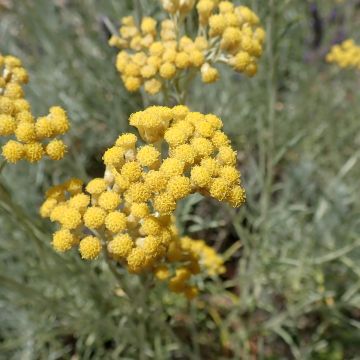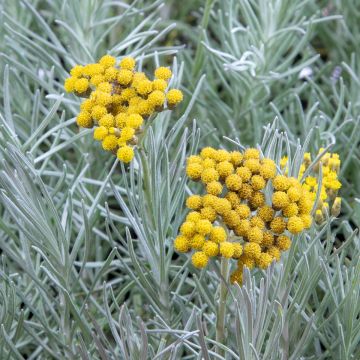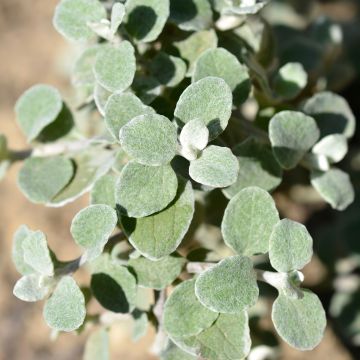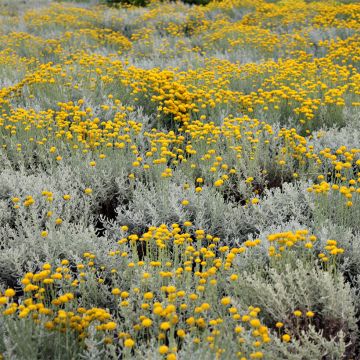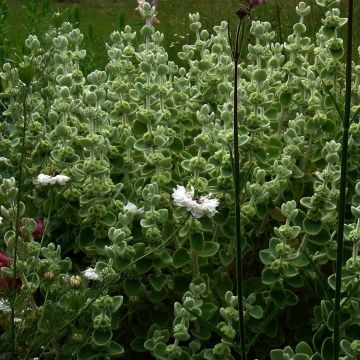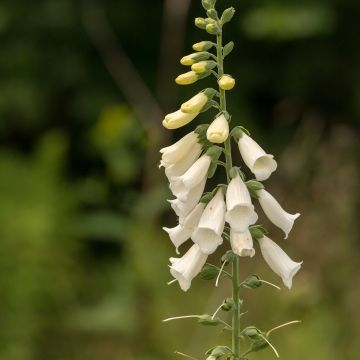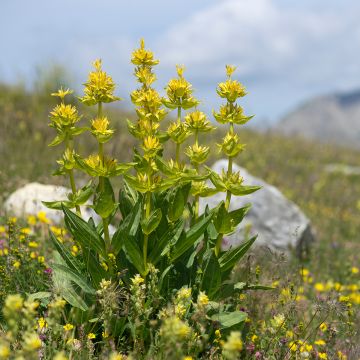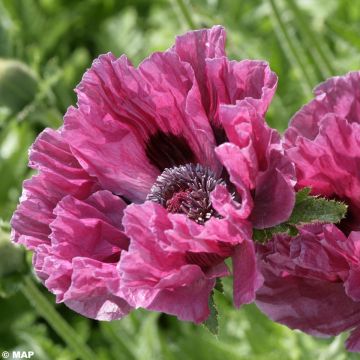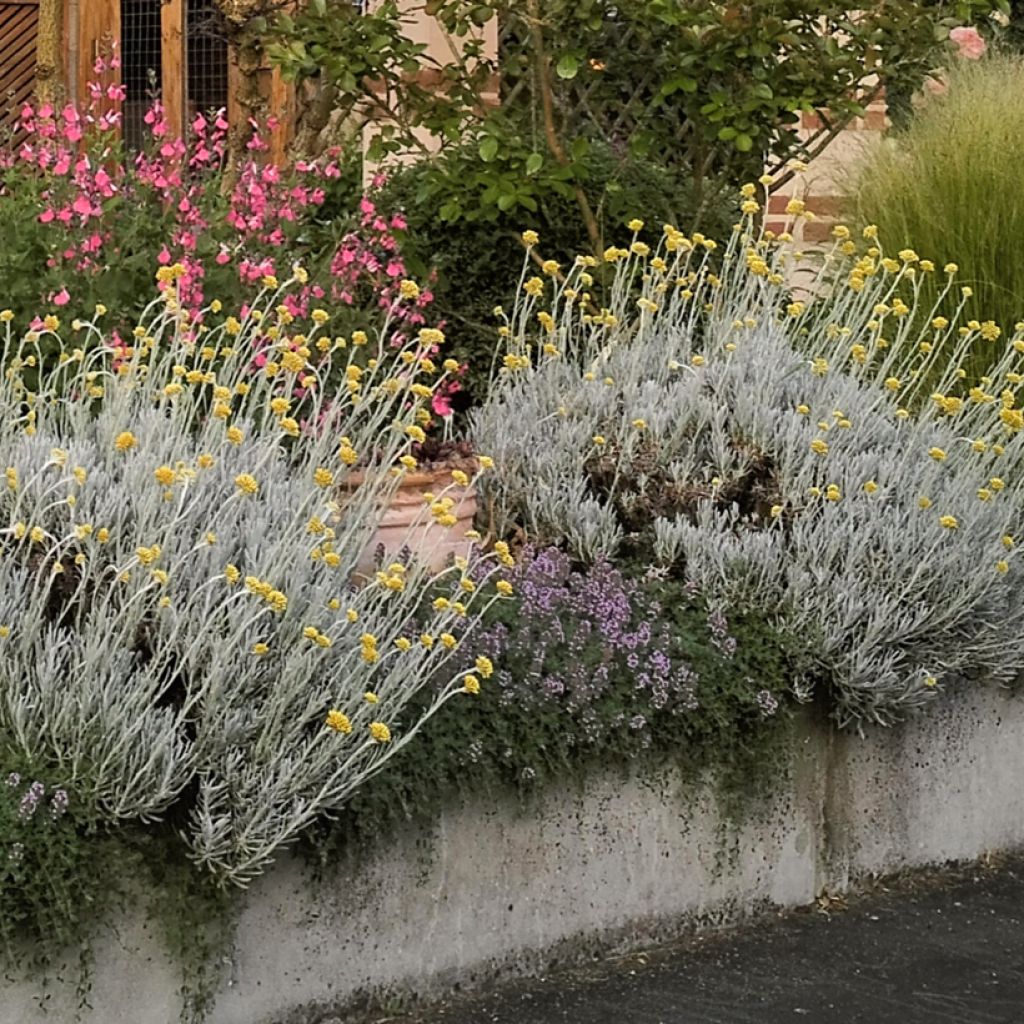

Helichrysum italicum Weisses Wunder
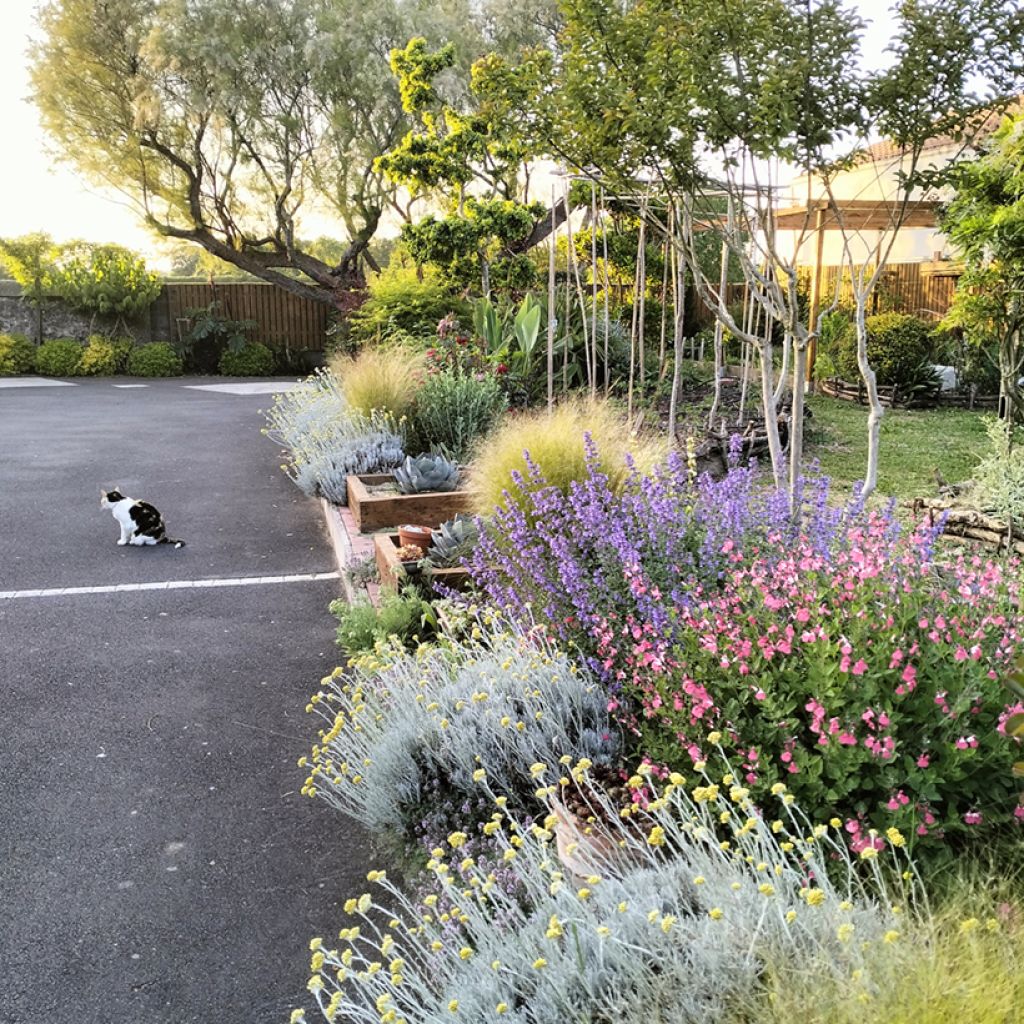

Helichrysum italicum Weisses Wunder
Helichrysum italicum Weisses Wunder
Helichrysum italicum Weisses Wunder
Curry Plant, Italian Strawflower
Special offer!
Receive a €20 voucher for any order over €90 (excluding delivery costs, credit notes, and plastic-free options)!
1- Add your favorite plants to your cart.
2- Once you have reached €90, confirm your order (you can even choose the delivery date!).
3- As soon as your order is shipped, you will receive an email containing your voucher code, valid for 3 months (90 days).
Your voucher is unique and can only be used once, for any order with a minimum value of €20, excluding delivery costs.
Can be combined with other current offers, non-divisible and non-refundable.
Home or relay delivery (depending on size and destination)
Schedule delivery date,
and select date in basket
This plant carries a 24 months recovery warranty
More information
We guarantee the quality of our plants for a full growing cycle, and will replace at our expense any plant that fails to recover under normal climatic and planting conditions.
Would this plant suit my garden?
Set up your Plantfit profile →
Description
Helichrysum 'Weisses Wunder' is a variety of Italian everlasting selected for its more compact and uniform habit, as well as the beauty of its foliage, which is wider and a beautiful silver-white colour. It is a perennial shrub of Mediterranean origin, moderately hardy but very drought-resistant. Its aromatic foliage releases a fragrance reminiscent of curry and diffuses several metres in hot weather or after rain. Its summer flowering with small golden yellow heads is charming, but can be removed to maintain the harmony of a pastel border. Its light foliage enhances all the garden or terrace flowers.
Native to the Mediterranean basin, the Hélichrysum italicum belongs to the asteraceae family. It is a fast-growing perennial undershrub with a dense tufted habit. 'Weisses Wunder' is a horticultural selection. This variety reaches about 30 cm in height and 40 cm in spread, its vegetation naturally remains dense and regular, without requiring pruning. Its leaves are evergreen. They are elongated and narrow, although wider than those of classic varieties, they are downy, light grey-silver and highly aromatic. The Italian everlasting produces small yellow flowers in heads between late May and July. They can be used to make dried bouquets with a bright yellow colour.
Helichrysum italicum 'Weisses Wunder' integrates perfectly into a rock garden, even in arid conditions. It always succeeds when combined with lavenders, oregano, thymes, and rosemary. Hardy down to -10°C, this undershrub thrives in light soils, including poor and rocky ones. It can also be used in romantic borders, for example at the base of roses. The fresh leaves can be used in cooking to flavour fish, grilled meats, rice, poultry, or marinades. Add them at the end of cooking, as their aroma in the kitchen is much less pronounced than the scent in the garden. The leaves are used for flavouring but are rather indigestible and it is best not to consume them. This plant grows well in pots and pleasantly perfumes a terrace.
The harvest: pick the flowers at the beginning of flowering to dry them. The evergreen leaves can be harvested throughout the year as needed. Storage: for bouquets, dry the flowered stems upside down in a dark room. They will keep for a long time this way. Use the leaves fresh.
The gardener's tip: if aphids or caterpillars invade the curry plant, use nettle manure or black soap.
Report an error about the product description
Helichrysum italicum Weisses Wunder in pictures
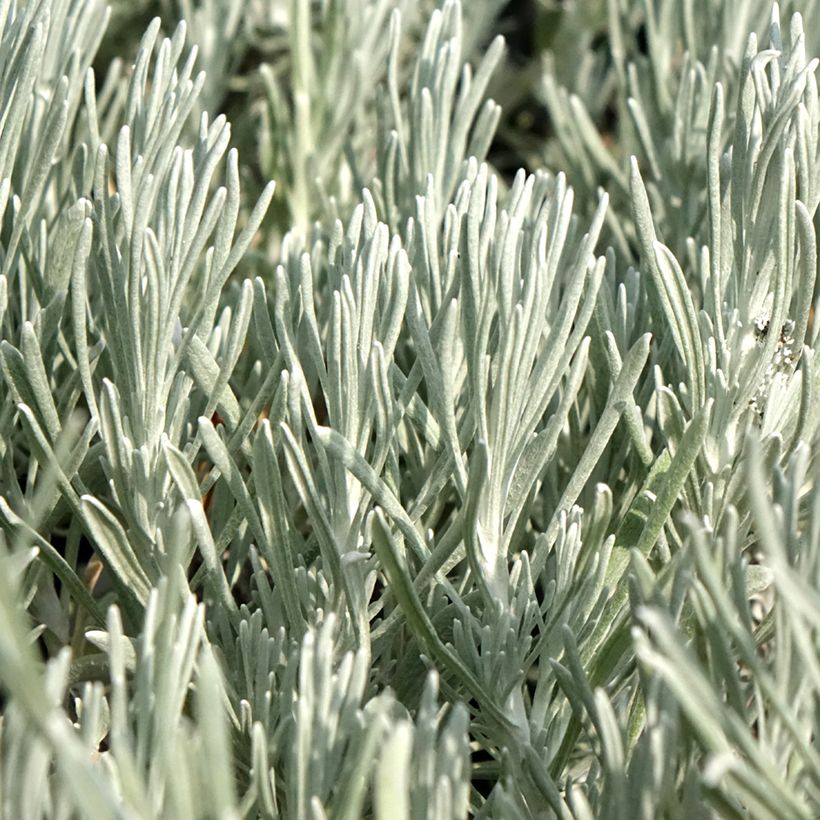



Plant habit
Flowering
Foliage
Botanical data
Helichrysum
italicum
Weisses Wunder
Asteraceae
Curry Plant, Italian Strawflower
Cultivar or hybrid
Other Helichrysum
View all →Planting and care
Plant Helichrysum italicum 'Weisses Wunder' in a very sunny, sheltered position, in very well-drained, even poor, limestone and stony soil. It is hardy to -10°C, but dislikes excess moisture, especially in winter, when it freezes. Like lavender, it is strongly recommended to prune it regularly to maintain a compact habit. Plants grown in pots should be watered regularly, allowing the growing medium to dry out slightly between waterings.
Planting period
Intended location
Care
This item has not been reviewed yet - be the first to leave a review about it.
Similar products
Haven't found what you were looking for?
Hardiness is the lowest winter temperature a plant can endure without suffering serious damage or even dying. However, hardiness is affected by location (a sheltered area, such as a patio), protection (winter cover) and soil type (hardiness is improved by well-drained soil).

Photo Sharing Terms & Conditions
In order to encourage gardeners to interact and share their experiences, Promesse de fleurs offers various media enabling content to be uploaded onto its Site - in particular via the ‘Photo sharing’ module.
The User agrees to refrain from:
- Posting any content that is illegal, prejudicial, insulting, racist, inciteful to hatred, revisionist, contrary to public decency, that infringes on privacy or on the privacy rights of third parties, in particular the publicity rights of persons and goods, intellectual property rights, or the right to privacy.
- Submitting content on behalf of a third party;
- Impersonate the identity of a third party and/or publish any personal information about a third party;
In general, the User undertakes to refrain from any unethical behaviour.
All Content (in particular text, comments, files, images, photos, videos, creative works, etc.), which may be subject to property or intellectual property rights, image or other private rights, shall remain the property of the User, subject to the limited rights granted by the terms of the licence granted by Promesse de fleurs as stated below. Users are at liberty to publish or not to publish such Content on the Site, notably via the ‘Photo Sharing’ facility, and accept that this Content shall be made public and freely accessible, notably on the Internet.
Users further acknowledge, undertake to have ,and guarantee that they hold all necessary rights and permissions to publish such material on the Site, in particular with regard to the legislation in force pertaining to any privacy, property, intellectual property, image, or contractual rights, or rights of any other nature. By publishing such Content on the Site, Users acknowledge accepting full liability as publishers of the Content within the meaning of the law, and grant Promesse de fleurs, free of charge, an inclusive, worldwide licence for the said Content for the entire duration of its publication, including all reproduction, representation, up/downloading, displaying, performing, transmission, and storage rights.
Users also grant permission for their name to be linked to the Content and accept that this link may not always be made available.
By engaging in posting material, Users consent to their Content becoming automatically accessible on the Internet, in particular on other sites and/or blogs and/or web pages of the Promesse de fleurs site, including in particular social pages and the Promesse de fleurs catalogue.
Users may secure the removal of entrusted content free of charge by issuing a simple request via our contact form.
The flowering period indicated on our website applies to countries and regions located in USDA zone 8 (France, the United Kingdom, Ireland, the Netherlands, etc.)
It will vary according to where you live:
- In zones 9 to 10 (Italy, Spain, Greece, etc.), flowering will occur about 2 to 4 weeks earlier.
- In zones 6 to 7 (Germany, Poland, Slovenia, and lower mountainous regions), flowering will be delayed by 2 to 3 weeks.
- In zone 5 (Central Europe, Scandinavia), blooming will be delayed by 3 to 5 weeks.
In temperate climates, pruning of spring-flowering shrubs (forsythia, spireas, etc.) should be done just after flowering.
Pruning of summer-flowering shrubs (Indian Lilac, Perovskia, etc.) can be done in winter or spring.
In cold regions as well as with frost-sensitive plants, avoid pruning too early when severe frosts may still occur.
The planting period indicated on our website applies to countries and regions located in USDA zone 8 (France, United Kingdom, Ireland, Netherlands).
It will vary according to where you live:
- In Mediterranean zones (Marseille, Madrid, Milan, etc.), autumn and winter are the best planting periods.
- In continental zones (Strasbourg, Munich, Vienna, etc.), delay planting by 2 to 3 weeks in spring and bring it forward by 2 to 4 weeks in autumn.
- In mountainous regions (the Alps, Pyrenees, Carpathians, etc.), it is best to plant in late spring (May-June) or late summer (August-September).
The harvesting period indicated on our website applies to countries and regions in USDA zone 8 (France, England, Ireland, the Netherlands).
In colder areas (Scandinavia, Poland, Austria...) fruit and vegetable harvests are likely to be delayed by 3-4 weeks.
In warmer areas (Italy, Spain, Greece, etc.), harvesting will probably take place earlier, depending on weather conditions.
The sowing periods indicated on our website apply to countries and regions within USDA Zone 8 (France, UK, Ireland, Netherlands).
In colder areas (Scandinavia, Poland, Austria...), delay any outdoor sowing by 3-4 weeks, or sow under glass.
In warmer climes (Italy, Spain, Greece, etc.), bring outdoor sowing forward by a few weeks.






























